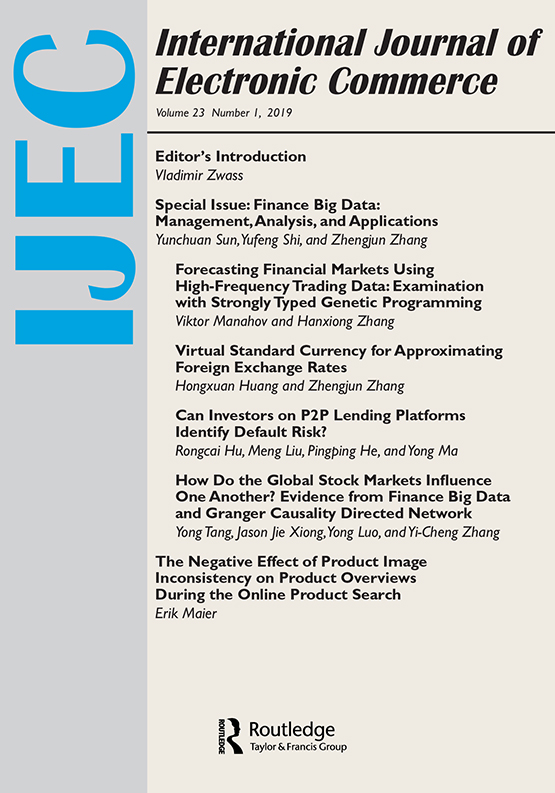应用程序放弃中的用户动机:一个四驱动模型
IF 3.8
3区 管理学
Q2 BUSINESS
International Journal of Electronic Commerce
Pub Date : 2022-01-02
DOI:10.1080/10864415.2021.2010005
引用次数: 2
摘要
摘要放弃软件应用程序可能会导致组织资源的重大损失,同时也会破坏应用程序开发人员、供应商和软件支持生态系统的持续成功。然而,尽管这种放弃可能会产生深远的影响,而且软件应用程序的经济和社会重要性越来越大,但人们对理解应用程序被成功采用后发生的应用程序放弃的关注相对较少。因此,我们开发了一个基于动机的四驱动模型的框架,以更好地理解收养后的遗弃决定,并进行了一项档案研究,在以享乐为导向的个人使用环境中测试我们提出的框架。这项研究的结果表明,个人获得地位和经验、与他人建立联系、理解和成长以及为自己的努力辩护的动机都对放弃申请的可能性有重要影响。具体而言,与应用程序相关的使用活动、应用程序中的用户交互、应用程序复杂性和应用程序承诺都被发现显著降低了放弃应用程序的可能性。本文章由计算机程序翻译,如有差异,请以英文原文为准。
User Motivation in Application Abandonment: A Four-Drives Model
ABSTRACT Abandonment of software applications can result in significant loses of organizational resources while also undermining the continued success of application developers, vendors, and software support ecosystems. Relatively little attention, however, has been directed toward understanding application abandonment that occurs after applications have been successfully adopted, despite the potentially far-reaching implications of such abandonment and the growing economic and social importance of software applications. We therefore developed a framework based on the four-drives model of motivation to better understand postadoption abandonment decisions and conducted an archival study to test our proposed framework in a hedonically oriented personal-use context. Results of this study suggest that individual motivations to acquire status and experience, bond with others, comprehend and grow, and defend their efforts all have significant implications for the likelihood of application abandonment. Specifically, application-related use activity, in-application user interaction, application complexity, and application commitments were all found to significantly diminish the likelihood of application abandonment.
求助全文
通过发布文献求助,成功后即可免费获取论文全文。
去求助
来源期刊

International Journal of Electronic Commerce
工程技术-计算机:软件工程
CiteScore
7.20
自引率
16.00%
发文量
18
审稿时长
>12 weeks
期刊介绍:
The International Journal of Electronic Commerce is the leading refereed quarterly devoted to advancing the understanding and practice of electronic commerce. It serves the needs of researchers as well as practitioners and executives involved in electronic commerce. The Journal aims to offer an integrated view of the field by presenting approaches of multiple disciplines.
Electronic commerce is the sharing of business information, maintaining business relationships, and conducting business transactions by digital means over telecommunications networks. The Journal accepts empirical and interpretive submissions that make a significant novel contribution to this field.
 求助内容:
求助内容: 应助结果提醒方式:
应助结果提醒方式:


